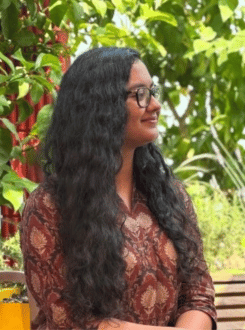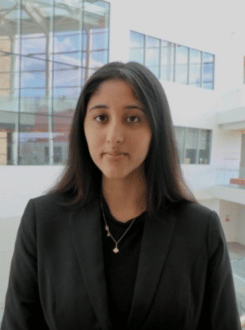The IB Diploma Programme (IB DP) is a rigorous, internationally recognized two-year curriculum offered by the International Baccalaureate (IB) for students aged 16–19. With its emphasis on breadth, depth, research, critical thinking, and global mindedness, the IB DP is designed to prepare students for higher education and life beyond school.
The IB DP curriculum is a balanced, challenging programme that combines six subject groups with a three-part DP core.
DP Core: Comprises three central, compulsory components:
Students typically take three (or sometimes four) Higher Level (HL) courses and the rest at Standard Level (SL). HL courses involve greater depth, more instructional hours, and increased expectations.
This structure ensures both breadth (across disciplines) and depth (in areas of interest), while integrating critical thinking, inter-disciplinary learning, and independent inquiry.
| Component | Description |
|---|---|
| Subject Groups (6) | Students choose one subject from each group (or equivalent). They may substitute a second subject from certain groups instead of the Arts. |
| Levels | HL (higher) and SL (standard) levels; differences in content coverage, assessment complexity, and teaching time. |
| Core (TOK, EE, CAS) | Designed to tie together subject learning, research skills, ethics, creativity, and community engagement. |
| Internal & External Assessment | Each subject includes internal assessments (e.g., investigations, projects, oral work) and external assessments (final exams, extended responses) to gauge student mastery. |
| Subject Updates & Pilots | The IB periodically updates subject syllabi and may pilot new subjects or school-based syllabuses (SBS) to stay current. |
Note:
SBS (school-based syllabus) is allowed only in certain subject groups (Individuals & Societies, Sciences, Arts) and must be authorized by IB.
The IB DP is more than just subject content. It places strong emphasis on:
TOK encourages students to reflect on how different disciplines relate—and to question assumptions about how knowledge is constructed.
The Extended Essay demands independent inquiry, critical thinking, and academic writing—preparing students for university research tasks.
The IB mission is woven through the DP: cultivating open-minded, culturally aware learners who can operate in a global environment.
The DP integrates the IB Learner Profile (e.g., inquirers, reflective, communicators) and ATL skills (thinking, communication, social, self-management, research) into teaching, assessment, and reflections.
Through CAS, students engage with local communities, reflect on ethical issues, and develop a sense of civic responsibility.
These aspects ensure the IB DP shapes not just academic competence but a more holistic student profile.
IB DP assessment aims to ensure fairness, reliability, and consistency across the globe, making it one of the most respected academic evaluation systems in international education.
Types of Assessment in the IB DP
The IB DP uses a combination of internal and external assessments to provide a balanced measure of student achievement.
Purpose:
To assess the skills that cannot be effectively evaluated in written exams, such as research, analysis, creativity, and presentation.
Purpose:
To measure conceptual understanding, critical thinking, problem-solving, and clarity of communication under standardized conditions.
Each subject in the IB DP is graded on a scale of 1 to 7, where:
In addition to the six subjects, students can earn up to 3 extra points based on combined performance in:
This brings the maximum achievable score in the IB DP to 45 points (6 subjects × 7 points + 3 core points).

Adithyan Diwakar
SAT: 1600 / 1600

Aarav Goel
SAT: 1600 / 1600
AP Computer Science A: 5 / 5
AP Physics C: Mechanics: 5 / 5

Pranet Khetan
SAT: 1600 / 1600
AP Computer Science A: 5 / 5
AP Calculus BC: 5 / 5

Romir Kumar
SAT: 1600 / 1600
AP Calculus BC: 5 / 5

Aksh Agarwal
SAT: 1590 / 1600

Kriti Bhabu
ACT: 36 / 36

Ria Chopra
Physics HL: 7 / 7

Ananya Bansal
AP Microeconomics: 5 / 5
AP Physics C: Mechanics: 5 / 5
AP Calculus BC: 5 / 5
AP Chemistry: 5 / 5

Nischay Singh
AP Microeconomics: 5 / 5
AP Physics C: Mechanics: 5 / 5
AP Statistics: 5 / 5
AP Calculus BC: 5 / 5
AP Macroeconomics : 5 / 5

Akrit Agarwal
AP Statistics: 5 / 5
AP Calculus BC: 5 / 5
ACT: 36 / 36
Any student aged 16–19 who has completed their secondary or middle years education (such as MYP, IGCSE, ICSE, or CBSE Grade 10) can apply. Some schools may conduct placement tests or interviews to ensure students can manage the programme’s academic demands.
The IB DP is known for its depth, breadth, and continuous assessment, which can make it more challenging.
However, it is also flexible and skills-focused, encouraging critical thinking and independence — qualities that universities value highly.
It’s not necessarily “harder,” but it’s different in structure and philosophy.
Universities worldwide — including Ivy League, Oxbridge, and top Asian and European institutions — highly value the IB Diploma.
It demonstrates readiness for college-level research, critical thinking, and global engagement.
Some universities even offer credits or course exemptions for high DP scores.
IB assessment blends internal assessments (IA) and external exams.
It values conceptual understanding over rote memorization, evaluating skills like reasoning, research, and application.
Final grades are standardized worldwide by IB examiners to ensure fairness.
Turning journeys into stories that inspire us every day
Tutela is an extremely organized center and provides students with ample resources to achieve the scores they desire. The helpful and patient teachers along with the multiple practice tests helped me obtain a 35 on the ACT, along with great SAT subject test and AP scores. Overall, it is a great center, and I would highly recommend it to anyone. Read More

Metro Delhi International School, Greater Noida, India
Since I have a joined Tutela, I have been very happy with it. The faculty is very supportive. No matter how much I messed up, they never gave-up and believed in me. Read More

The Shri Ram School, Aravali, Haryana, India
I'd joined Tutela while I was preparing for my class 10 boards, starting off with classes just for English. In the span of a few weeks, I saw improvement both in testing and otherwise. With in-depth knowledge and expertise about the testing process, Tutela enabled me to improve my test scores and test-taking skills with the help of teachers who personally connected with and supported the students. Practice is the key to success. This is something which is taken very seriously at Tutela, with multiple tests and drills every week to refine concepts. It's a place which enables both reinforcement and comfort, so I'm glad to have studied at the institute to secure a great ACT score! Read More

Vasant Valley School, New Delhi, India
I had only a couple of weeks left for my SAT Physics Subject Test. The teacher was very accommodating of the time crunch that I had. Even with the minimal time, he was able to teach all the topics thoroughly and effectively. By the end of the course, I actually had time left for taking many practice tests. As for AP Physics, I started out with absolutely no prior knowledge of many topics. The teache, Mr. Ashish, was able to adjust his pace of teaching with my pace and understanding of topics. He gave plenty of examples to explain the concepts. I never felt that I was preparing for the test on my own. Whenever I needed help, I could ask my instructor and he would respond within minutes. Read More

The Shri Ram School, Moulsari, Gurgaon, Haryana, India
The informal, accepting atmosphere combined with the rigorous academic schedule at Tutela allowed me to successfully embrace the challenging standardized tests. The teachers, who communicated not only syllabus but also test-taking skills, accommodated my learning style and worked around my other commitments. Walk into Tutela with the expectation that you will be guided and nurtured (and partake in loads of Marvel and Food-based conversations), not merely tutored. Read More

Pathways World School, Gurgaon, Haryana, India
The teachers really helped me understand the concepts in depth and helped me throughout. The resources used are also very effective as they helped me increase my score, and achieve a high SAT score. Thanks a lot for your support and help Read More

Nord Anglia International School, Dubai, UAE
Tutela is one of the best centers for test prep in India. Despite the pandemic and the classes online, the teachers at Tutela ensured that classes were interesting and engaging. I only prepped with them for one exam, AP Calculus, but they were prompt and generous in providing me with practice tests for the other APs I was self-prepping for. Tutela is a great institution for education; I would highly recommend it to any student wishing to score well on any college exam they are taking. Read More

Sanskriti School
Tutela was a great help during my AP prep. My mentors were very helpful in scheduling extra classes and practice sessions according to my requirements. They ensured that I was well-prepared by test day. Even though all my APs went well, Tutela made Calculus and Stats a far better learning experience compared to the ones I self-prepared for! Read More

The Shri Ram School, Aravali, Haryana, India
I've had an incredible experience at Tutela. Tutela teachers have always been outstanding at their jobs and very supportive, whether it be for the SAT or the AP exams. Tutors are available whenever you need them, and Tutela's numerous materials, classes, and tests are the most beneficial for students. It is the best platform for learning and achieving the goals you have set. Read More

Amity International School, India
Tutela has an excellent faculty with extremely supportive teachers who worked tirelessly to clear my concepts. The resources that received were more than adequate for my preparation and the online classes were extremely productive. I had a great experience with my teachers. Highly recommend!! Read More

Heritage Xperiential School, India
I felt learning at Tutela was an amazing experience. Mukul Sir is a great teacher, who worked tirelessly to clarify every concept and clear all my doubts. I would love to learn under him again. Ashish Sir also provided me with constant guidance, which I found to be very helpful. Read More

The Shri Ram School, Aravali, Haryana, India
I attended Tutela for about 3 months. Their welcome was very positive and they take every student as a challenge, working hard on their weaknesses. They pushed us to score better not by completing the curriculum early, but by making us understand the concepts. The teachers are devoted and they helped me at every step. They worked with me and guided me through the new online format. Due to their dedication, I was able to prepare for the December attempt in such a short time and get a good score. I’m thankful to everyone at Tutela for their support. Read More

Delhi Public School, Gurgaon, Haryana, India